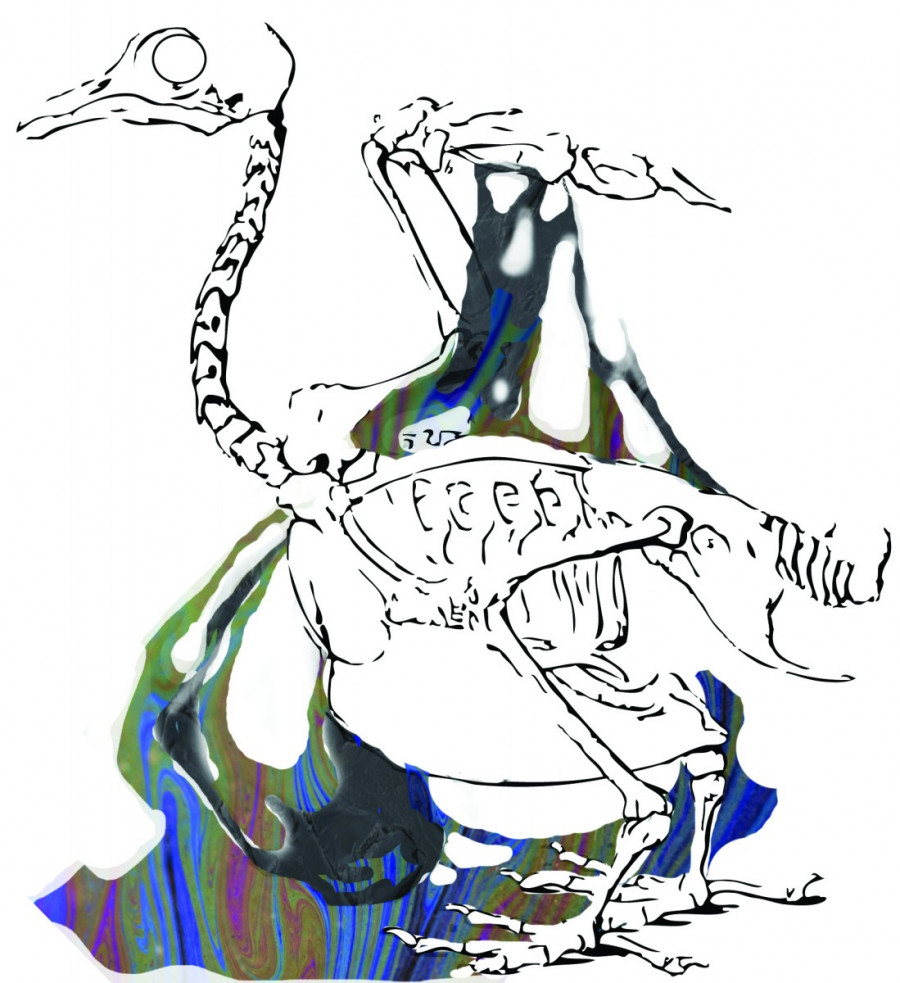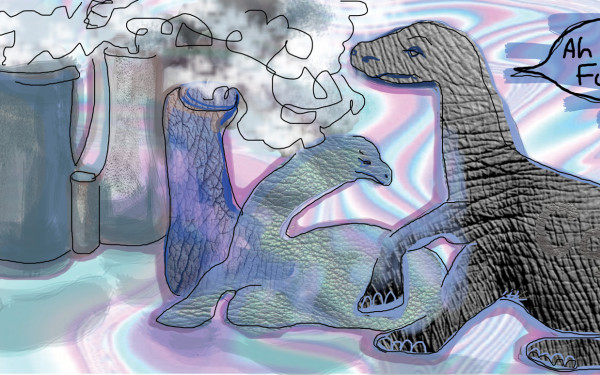Concordia Leans Green
University’s Foundation Commits to Partial Divestment
The people that control Concordia’s biggest investment fund, creatively named the Concordia University Foundation, are reserving a portion of that money for companies that care about the environment.
On Nov. 26, the university released a statement that they will dedicate $5 million from the foundation to a sustainable investment fund as of January.
Sustainable investment or divesting means selling shares in fossil fuels and reinvesting in renewable energy to move towards a low-carbon economy.
Officially it means investing in companies that comply with high environmental, social and corporate governance standards, like those concerned with climate change, food and water, and avoiding those that don’t comply, like fossil fuels, weapons or tobacco.
It’s a small step in the right direction, according to Anthony Garoufalis-Auger, the Concordia Student Union’s VP External Mobilization and a spokesperson for the provincial anti-pipeline student coalition Étudiants et étudiantes contre les oléoducs.
“It is nice that the university recognized that fossil fuels are unsustainable and the CSU welcomes that,” he said. “We know the process of divestment is not done overnight.”
The fund is made up of donations given to the university and transferred to the foundation. The foundation manages them to increase their value, so there ends up being more money available to support student scholarships and bursaries.
A working group formed last year with representation from different student bodies including the CSU, the GSA and Divest Concordia along with two or three members of the Concordia Foundation board.
“The Foundation board wanted to get a better sense of what it is student leaders are talking about and what was being proposed,” Concordia’s VP External Relations Bram Freedman said.
Marcus Peters from Divest Concordia says the working group is a successful initiative for student groups to create a dialogue with Concordia’s administration and the foundation.
“It’s still a positive move in that it shows a willingness to negotiate, a willingness to accept it as an issue,” said Peters.But Divest Concordia says the university needs to continue moving forward. It released a negative statement, accusing the university of greenwashing by pretending to be a leader in sustainability without making any long-term commitment to divestment.
Freedman wasn’t surprised by Divest Concordia’s response. “We know what their mandate is, and what they feel the proper approach is,” he said.
“We see this as a first step,” Freedman said. “This is new territory for all of us.”
The CSU commissioned research by PhD candidate and part-time professor Erik Chevrier about socially responsible investment. The research is already out there, Garoufalis-Auger said; it’s just a matter of the university taking steps and divesting all their shares from fossil fuels.
Most of the CUF’s investing is done through pooled funds, making it difficult to track down the actual companies getting Concordian cash, since it’s all managed by a third-party investment manager. Divest Concordia says there’s a lack of transparency in this process.
Freedman admits he doesn’t actually have an idea off-hand of how much of the fund is currently invested in fossil fuels. Investment managers sell pooled funds of investments that don’t necessarily label all the companies being invested in.
“We don’t have a grip on how much of our endowment is currently [invested in fossil fuels], but we know that some of it is,” said Freedman.
In the CUF’s 2011 financial report, investments under common shares are given labels like oil and gas, pipelines, metals and minerals. But in 2012 those labels became more ambiguously named as energy, materials and utilities, according to Chevrier’s report.
Divest Concordia collected over 2,400 signatures on a petition calling for complete divestment within three years. The entire endowment fund is estimated to be about $100 million.
The CSU and GSA also have mandates to support divestment and sustainability groups. The CSU has its own large fund, the SSAELC fund, which isn’t invested in anything at the moment.
Concordia is the first university in Canada to join a movement that is growing worldwide.
Concordia President Alan Shepard discussed the idea of a Sustainable Investment Fund with The Link a few months ago when environmentalist Bill McKibben came to speak at Concordia.
The issue was brought to the forefront again at the Fossil Free Canada Convergence jointly hosted by Concordia and McGill last month.
Last month the University of Glasgow’s court voted to divest £18 million ($28 million) from fossil fuels and freeze the rest of its investments for its total endowment of £128 million ($201 million). It was the first university in Europe to do so, joining over a dozen U.S. universities with a commitment to divestment, including Stanford University.
Concordia’s decision came a day after Dalhousie University in Halifax voted against divesting in fossil fuels while it was considering the future of $20 million-worth in investments out of its $500 million fund. The school’s board of governors made the decision.
“If we turn our back on a number of companies, why would they put money in here?” George McLellan, head of the board of governor’s investment committee, told CBC news.
Freedman says at the end of the day, the obligation of the foundation is to make sure that it generates enough returns to be able to support student bursaries and student scholarships.
“Let’s see what the results are and then we can keep talking and see what is available,” he said.




_600_375_90_s_c1.jpg)

2web_600_375_90_s_c1.jpg)
_600_375_90_s_c1.jpg)